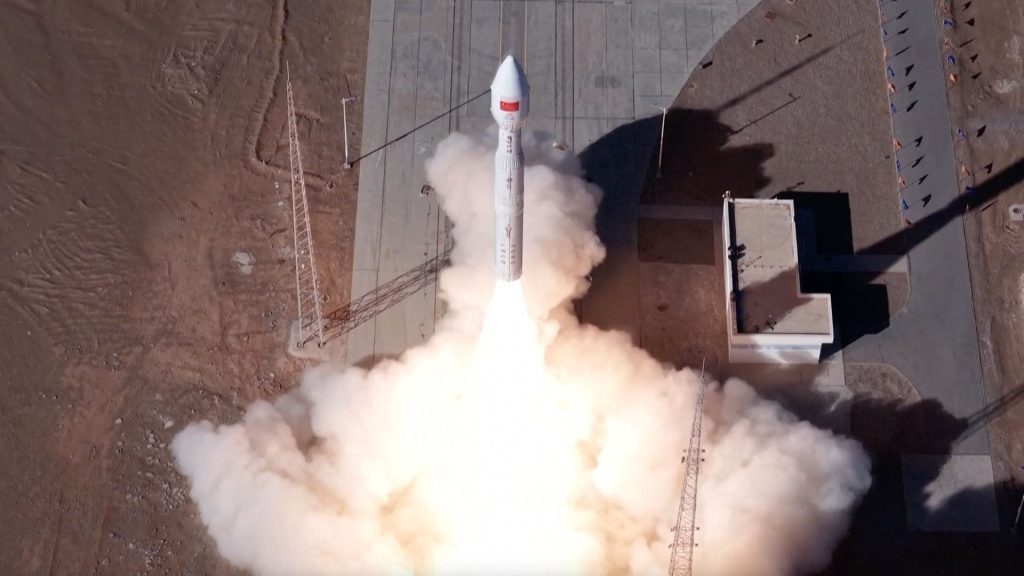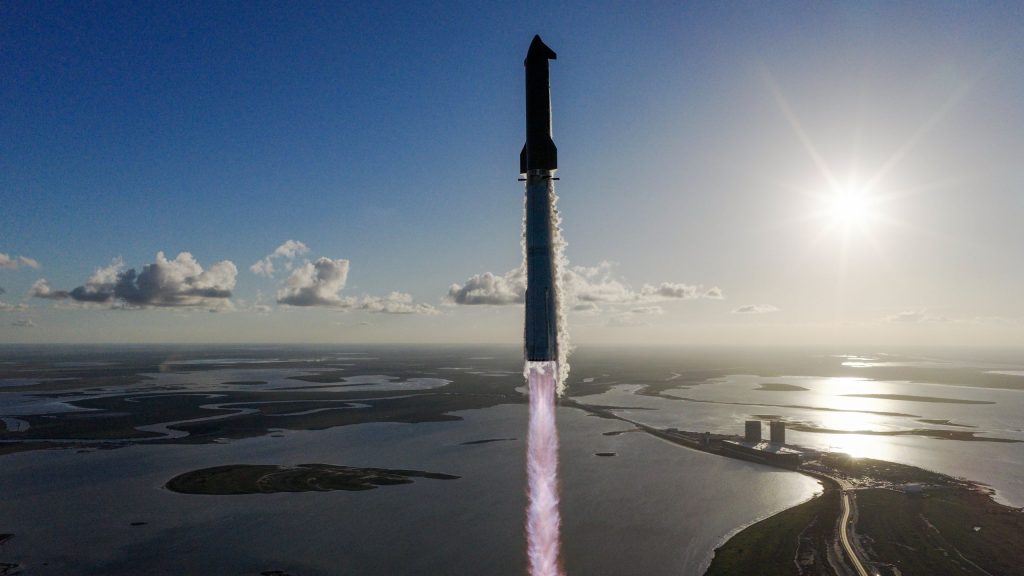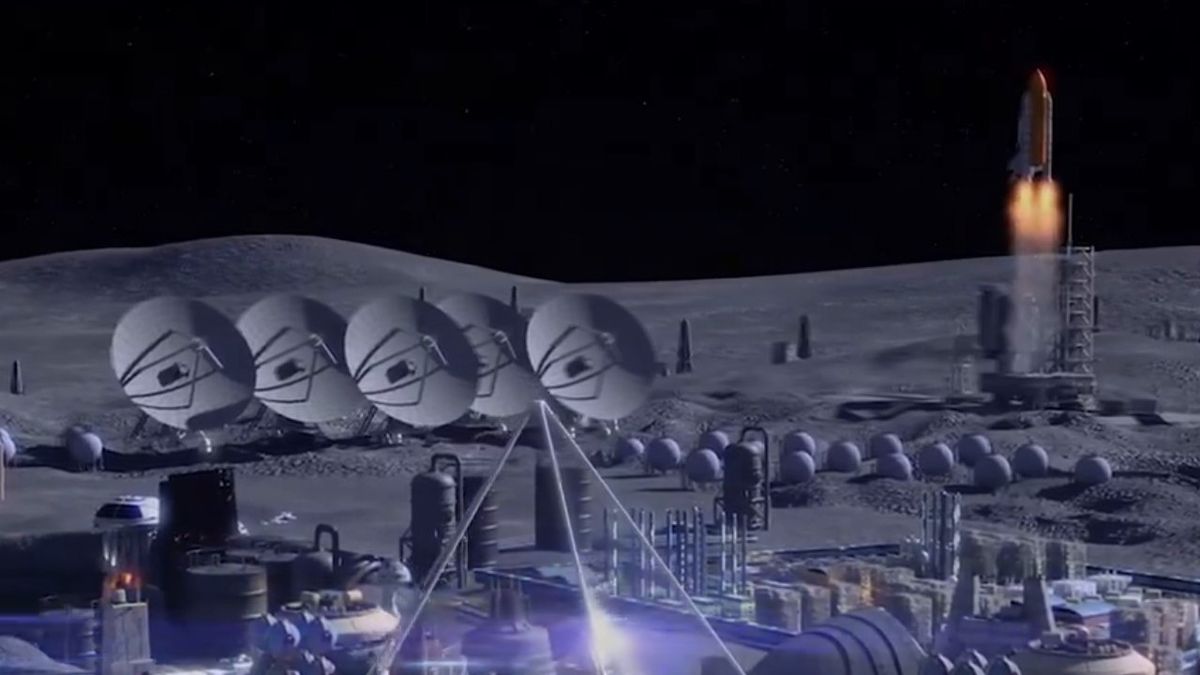SpaceX prepares Starship megarocket for a crucial test by fueling it up before its sixth test flight (photos).
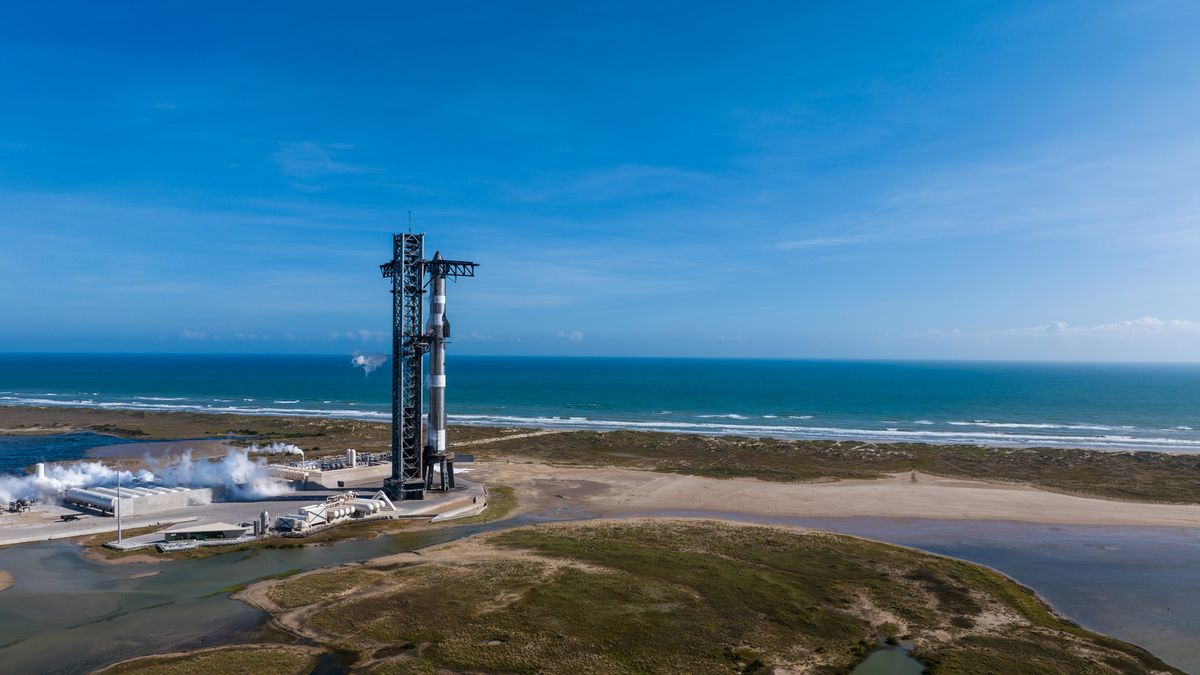
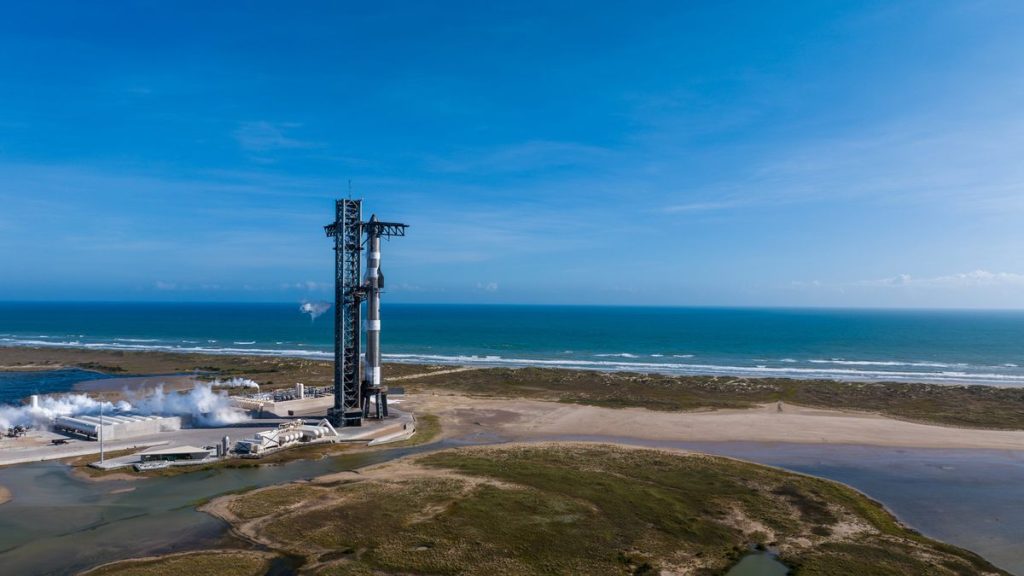
SpaceX fuels up Starship megarocket in key test ahead of 6th test flight (photos) (Image Credit: Space.com)
The largest, most powerful rocket ever built is about to launch on its sixth test flight. SpaceX’s Starship upper stage and Super Heavy booster are stacked next to the launch tower at the company’s Starbase launch and test facility in southern Texas ahead of the vehicle’s next mission, which is scheduled for tomorrow evening (Nov. 19).
SpaceX is targeting a 30-minute window for Tuesday’s launch, designated Integrated Test Flight-6 (IFT-6), beginning at 5 p.m. EST (2200 GMT). It will be the sixth launch of the Starship-Super Heavy stack, and the second time SpaceX aims to catch the rocket booster mid-air during the stage’s deceleration landing burn. The first such effort came just over a month ago, on Oct. 13, when SpaceX launched Starship IFT-5, and succeeded in catching Super Heavy using the launch tower’s “chopstick” arms.
Now, the next Starship in line is ready for flight. The Super Heavy-Starship stack was fueled up Sunday (Nov. 17), as SpaceX performed a “wet dress rehearsal” and other systems checks ahead of tomorrow’s planned launch. “Propellant load test and preflight checkouts complete ahead of Starship’s sixth flight test,” SpaceX said in a post on X.
SpaceX shared photos of Sunday’s fueling as a part of the post, featuring the shiny Starship rocket, frosted in sections from the super-chilled propellants filling its tanks. Starbase sits along the beach overlooking the Gulf of Mexico, near the southernmost tip of Texas. The remote area is acutely advantageous for these types of test launches, and is also particularly picturesque against the natural backdrop of the marshes, sand dunes and sea.
Related: What to expect during SpaceX’s 6th Starship test flight on Nov. 19
The flight profile for IFT-6 largely mirrors that of IFT-5, with Super Heavy returning to the launch site as the 165-foot-tall (50 meters) Starship upper stage continues onward into space. Building from its previous flight, SpaceX has added an additional goal to tomorrow’s launch, not included on IFT-5, but one that’s critical to Starship’s operational qualification.
While in space, Starship will reignite one of its six Raptor engines — a critical capability for Starship flights beyond low Earth orbit and for future missions to the moon and Mars. For that reason, NASA is also keeping a close eye on Starship’s development progress.
The U.S. space agency has contracted SpaceX to build a version of Starship to be used as the lunar lander for the Artemis 3 mission, which aims to return astronauts to the surface of the moon. The third flight in NASA’s Artemis program, Artemis 3 is currently scheduled to launch in the second half of 2026, with a precursor mission (Artemis 2) sending astronauts around the moon and back in November 2025. Both missions were delayed by NASA from 2024 and 2025, respectively. Now, any delays to Starship’s development could potentially delay NASA’s Artemis program further.
Propellant load test and preflight checkouts complete ahead of Starship’s sixth flight test → https://t.co/oIFc3u9laE pic.twitter.com/r6XNKyY2ZfNovember 17, 2024
Tomorrow’s Starship launch can be livestreamed on SpaceX’s X account, and will be simulcast on Space.com’s YouTube channel, VideoFromSpace.
The stream is expected begin about 30 minutes before the opening of Starship’s 5 p.m. EST (2200 GMT) launch window. Video of the launch can also be watched live at the top of the Space.com homepage, starting about about 4:30 p.m. EST (2130 GMT).




